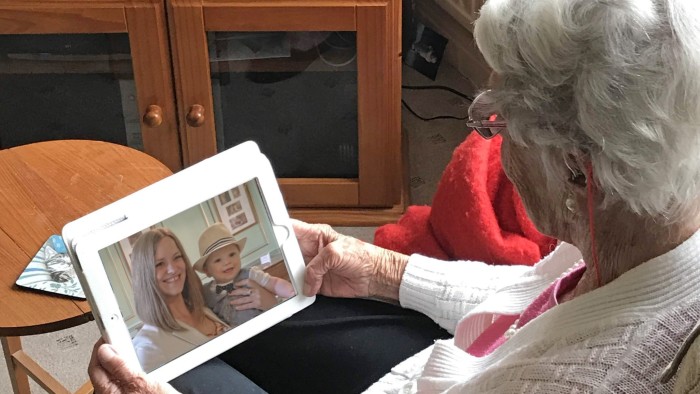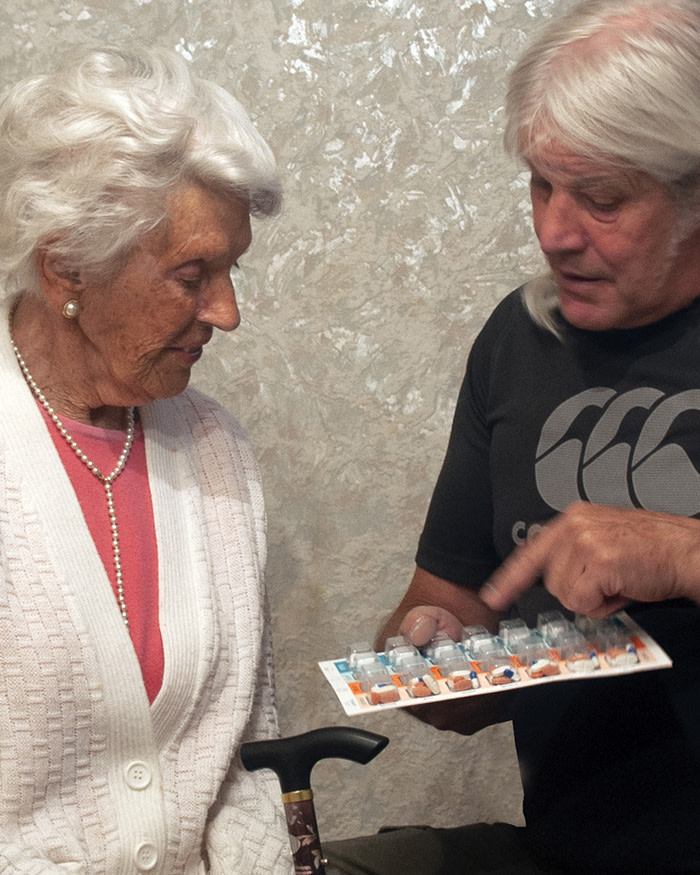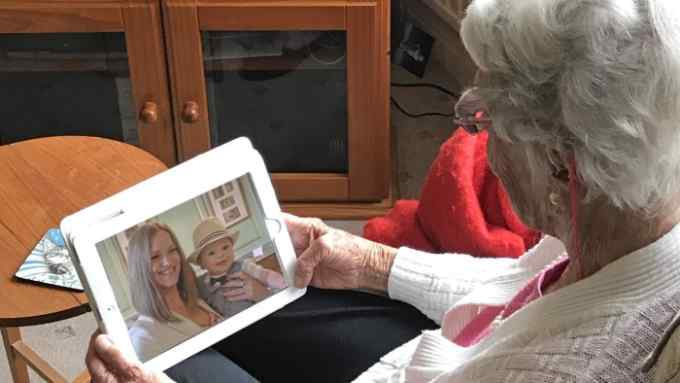‘Her face lights up at baby photos’: caring for a parent with dementia

Roula Khalaf, Editor of the FT, selects her favourite stories in this weekly newsletter.
My 89-year old mum has suffered memory problems for many years, but this did not cause concern until 2014 when there was a marked decline.
My first act was to take her to her doctor, who referred her to a memory clinic in Bromley, south-east London, where she was diagnosed with late-onset dementia and Alzheimer’s disease.
She was prescribed memantine — a drug designed to improve cognitive performance and make it easier to manage everyday tasks. This will only slow the decline: it was made clear there was no cure.
Adapting to cope
I have moved in with her, having reduced my working week to four days, including one when I work from home while acting as a part-time carer.
I am fortunate that my employer has a flexible working policy and I have supportive colleagues and managers.
Just as I dropped down to a four-day week, my daughter gave birth to a son. This has given mum a new focus and she lives for the next meeting with her first great-grandchild.
It is lovely to see her face light up when she receives an email with the latest baby photos. We now often fill the time I thought I would gain by reducing my working week with visits to cuddle the baby.
It was not what I had planned. I thought I would be taking mum for days out to stately homes and garden centres to keep her amused, but this is a much better alternative.
Her disease is not too advanced at the moment, but I can appreciate how draining it must be when you have seen the creeping deterioration of a loved one over many years, to a point when you are conversing with an empty shell. I dread the day when she no longer recognises me or my children.

Support and advice
The local dementia support hub was very helpful and sent lots of information on day centres, lunch clubs, dementia cafés, singing groups, local transport, attendance allowance and befriending and sitter services. It also advised me I could get her a reduction in council tax.
Distractions and stimulation
When mum was widowed in 2006 and living on her own 200 miles from me in Devon, south-west England, I decided to scan all the family photos from my dad’s collection and put them on an iPad.
It was one of the best investments I have made.
Fortunately she had got to grips with the technology long before being diagnosed — this would have been an impossible task now. She spends hours flicking through the photos, rarely remembering where or when they were taken, but to see that little smile of recognition makes it worthwhile.
I have installed puzzles and games on the iPad to keep her mind active, and I have bought her a simple-to-use smartphone designed for the elderly. It has an emergency button she can push if she becomes disoriented, which calls me and sends a message with her location.
My phone often goes off at the most inappropriate times with messages and GPS coordinates, only for it to transpire she had set it off when cramming it in her handbag. She is usually unaware but I never get cross with her.
Her phone also features a simple address book with photos of her main contacts on the home screen, so all she has to do is tap the picture to call — an essential feature as the disease advances.
Keeping her active helps slow the decline. Little things help, such as introducing her to a radio or television channel she wasn’t aware of, featuring something that might spark a memory, or a trip to London to rediscover her early working life and memories of where she celebrated VE Day in 1945, and who she was with at the time.
Dealing with the pressure
I am of the age when friends are going through similar problems, so we compare notes and frustrations over a beer sometimes. It helps to know I am not alone.
On the day when I work from home, I shut myself away, explaining that I have to concentrate and make phone calls. She seems to remember this now, but there were a few hiccups at first.
I still have an active social life, which helps me keep a balance. Mum doesn’t mind being left alone for short periods as long as I call to check everything is in order. I also ask my son and daughter to phone or call in, which brightens her day.
Things will become more challenging as the disease advances and we have to rely on help from outside. At the moment, the decline is very slow, but I am told it can suddenly race ahead. This is why I am trying to make the most of the time we have now, and hope mum will retain some of these happy memories in the darker times to come.
Graham Parrish is a graphics editor at the Financial Times

Comments